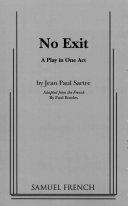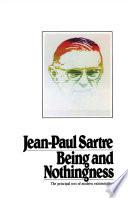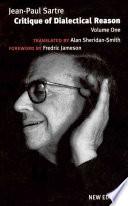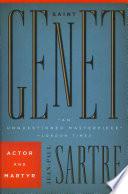Works
The Devil and the Good Lord
Jean Paul SartreDirty Hands
Jean Paul Sartre
No Exit
Jean Paul Sartre
Being and Nothingness
Jean Paul SartreThe Age of Reason
Jean Paul SartreThe Words
Jean Paul SartreThe Wall
Jean Paul SartreAnti-Semite and Jew
Jean Paul Sartre
Critique of Dialectical Reason
Jean Paul SartreThe Transcendence of the Ego
Jean Paul SartreSituations
Jean Paul SartreThe Condemned of Altona
Jean Paul SartreFamous Jean Paul Sartre Quotes
“Man is nothing else but what he makes of himself.”
No Exit (1944)
Variant: A man is what he wills himself to be.
Source: Existentialism and Human Emotions
Act 4, sc. 5
The Devil and the Good Lord (1951)
Jean Paul Sartre: Trending quotes
“As far as men go, it is not what they are that interests me, but what they can become.”
Act 5, sc. 3
Dirty Hands (1948)
L'âge de raison (The Age of Reason) (1945)
(179).
Saint Genet, Actor and Martyr (1952)
Jean Paul Sartre Quotes
Source: Nausea
“You are -- your life, and nothing else.”
Source: No Exit
Act 10, sc. 4
The Devil and the Good Lord (1951)
“She believed in nothing; only her skepticism kept her from being an atheist.”
The Words (1964), speaking of his grandmother.
Source: Existentialism Is a Humanism (1946), p. 58
“To know what life is worth you have to risk it once in a while.”
Source: No Exit and Three Other Plays
The Transcendence of the Ego: An Existentialist Theory of Consciousness
Act 10, sc. 2
The Devil and the Good Lord (1951)
Variant: Hell is others.
Source: No Exit
“Freedom is what we do with what is done to us.”
Variant: Freedom is what you do with what's been done to you.
“When the rich make war, it's the poor that die.”
Quand les riches se font la guerre, ce sont les pauvres qui meurent.
The Devil and the Good Lord (1951)
Source: Le diable et le bon dieu
Existentialism Is a Humanism, lecture http://www.marxists.org/reference/archive/sartre/works/exist/sartre.htm (1946)
Context: We will freedom for freedom’s sake, in and through particular circumstances. And in thus willing freedom, we discover that it depends entirely upon the freedom of others and that the freedom of others depends upon our own. Obviously, freedom as the definition of a man does not depend upon others, but as soon as there is a commitment, I am obliged to will the liberty of others at the same time as my own. I cannot make liberty my aim unless I make that of others equally my aim.
Part 4, Chapter 1, III
Being and Nothingness (1943)
Context: I am responsible for everything … except for my very responsibility, for I am not the foundation of my being. Therefore everything takes place as if I were compelled to be responsible. I am abandoned in the world … in the sense that I find myself suddenly alone and without help, engaged in a world for which I bear the whole responsibility without being able, whatever I do, to tear myself away from this responsibility for an instant.
"Orphée Noir (Black Orpheus)" preface, Anthologie de la Nouvelle Poésie Nègre et Malgache (1948)
Context: What then did you expect when you unbound the gag that muted those black mouths? That they would chant your praises? Did you think that when those heads that our fathers had forcibly bowed down to the ground were raised again, you would find adoration in their eyes?
Acts 8 & 9
The Devil and the Good Lord (1951)
“This root, on the other hand, existed in such a way that I could not explain it.”
Reflections on a chestnut tree root.
Nausea (1938)
Context: Absurd, irreducible; nothing — not even a profound and secret delirium of nature — could explain it. Obviously I did not know everything, I had not seen the seeds sprout, or the tree grow. But faced with this great wrinkled paw, neither ignorance nor knowledge was important: the world of explanations and reasons is not the world of existence. A circle is not absurd, it is clearly explained by the rotation of a straight segment around one of its extremities. But neither does a circle exist. This root, on the other hand, existed in such a way that I could not explain it.
Reflections on a chestnut tree root.
Nausea (1938)
Context: Absurd, irreducible; nothing — not even a profound and secret delirium of nature — could explain it. Obviously I did not know everything, I had not seen the seeds sprout, or the tree grow. But faced with this great wrinkled paw, neither ignorance nor knowledge was important: the world of explanations and reasons is not the world of existence. A circle is not absurd, it is clearly explained by the rotation of a straight segment around one of its extremities. But neither does a circle exist. This root, on the other hand, existed in such a way that I could not explain it.
Jupiter to Electra, Act 3
The Flies (1943)
Context: You are a tiny little girl, Electra. Other little girls dreamed of being the richest or the most beautiful women of all. And you, fascinated by the horrid destiny of your people, you wished to become the most pained and the most criminal … At your age, children still play with dolls and they play hopscotch. You, poor child, without toys or playmates, you played murder, because it is a game that one can play alone.
“I cannot make liberty my aim unless I make that of others equally my aim.”
Existentialism Is a Humanism, lecture http://www.marxists.org/reference/archive/sartre/works/exist/sartre.htm (1946)
Context: We will freedom for freedom’s sake, in and through particular circumstances. And in thus willing freedom, we discover that it depends entirely upon the freedom of others and that the freedom of others depends upon our own. Obviously, freedom as the definition of a man does not depend upon others, but as soon as there is a commitment, I am obliged to will the liberty of others at the same time as my own. I cannot make liberty my aim unless I make that of others equally my aim.
“Ah! Do not judge the gods, young man, they have painful secrets.”
Jupiter, Act 1
The Flies (1943)
Lecture given in 1946 (Existentialism from Dostoyevsky to Sartre, ed. Walter Kaufman, Meridian Publishing Company, 1989;) http://www.marxists.org/reference/archive/sartre/works/exist/sartre.htm (1946)
Context: Dostoevsky once wrote: “If God did not exist, everything would be permitted”; and that, for existentialism, is the starting point. Everything is indeed permitted if God does not exist, and man is in consequence forlorn, for he cannot find anything to depend upon either within or outside himself. He discovers forthwith, that he is without excuse.
“Like all dreamers I confuse disenchantment with truth.”
Variant: Like all dreamers I confuse disenchantment with truth.
Inès reiterating to Garcin that they cannot ignore one another, Act 1, sc. 5
No Exit (1944)
Source: No Exit and Three Other Plays
Garcin, Act 1, sc. 5
Variant: So that is what hell is. I would never have believed it. You remember: the fire and brimstone, the torture. Ah! the farce. There is no need for torture: Hell is other people.
Source: No Exit (1944)


